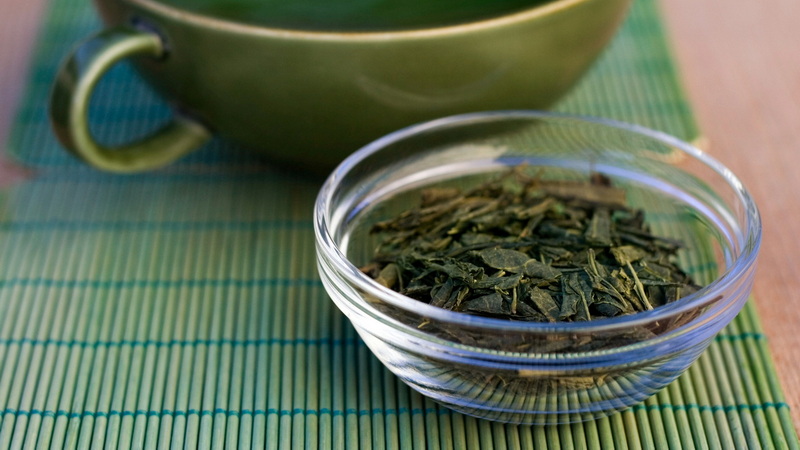Content Menu
● Understanding Green Tea Extract
>> Benefits of Green Tea Extract
● The Caffeine Factor
>> How Caffeine Affects Sleep
● The Role of L-Theanine
● Timing Your Green Tea Extract Consumption
● Potential Side Effects
● Health Benefits Supported by Research
>> 1. Weight Loss Support
>> 2. Heart Health Improvement
>> 3. Enhanced Brain Function
>> 4. Antioxidant Effects
● Recommended Dosage
● Precautions and Considerations
● Expanding on Health Benefits
>> Additional Studies on Weight Loss
>> Cardiovascular Health
● Practical Tips for Incorporation
● Final Thoughts
● Conclusion
● FAQ
>> 1. Can I drink green tea extract before bed?
>> 2. What are the benefits of taking green tea extract?
>> 3. How much caffeine is in green tea extract?
>> 4. Is L-theanine beneficial for sleep?
>> 5. What should I do if I experience side effects from green tea extract?
● Citations:
Green tea extract has gained popularity due to its numerous health benefits, including weight management, improved metabolism, and enhanced cognitive function. However, many individuals wonder whether it is advisable to take green tea extract at night. This article will explore the potential effects of consuming green tea extract in the evening, its benefits, drawbacks, and provide insights into the best practices for incorporating it into your routine.

Understanding Green Tea Extract
Green tea extract is derived from the leaves of the Camellia sinensis plant and is rich in polyphenols, particularly catechins like epigallocatechin gallate (EGCG). These compounds are known for their antioxidant properties and various health benefits.
Benefits of Green Tea Extract
- Weight Management: Green tea extract can enhance fat oxidation and improve metabolic rate, making it a popular choice for those looking to manage their weight.
- Cognitive Function: The caffeine and L-theanine present in green tea can improve brain function, enhancing alertness and focus.
- Heart Health: Regular consumption of green tea extract has been linked to reduced cholesterol levels and improved cardiovascular health.
- Antioxidant Properties: The high concentration of antioxidants helps combat oxidative stress and may reduce the risk of chronic diseases.
The Caffeine Factor
One of the main concerns about taking green tea extract at night is its caffeine content. A typical serving of green tea extract can contain around 30-50 mg of caffeine. While this is significantly lower than coffee, caffeine is a known stimulant that can interfere with sleep.
How Caffeine Affects Sleep
Caffeine blocks adenosine, a neurotransmitter that promotes sleepiness. Consuming caffeine too close to bedtime can lead to:
- Difficulty falling asleep
- Reduced sleep quality
- Increased nighttime awakenings
For individuals sensitive to caffeine, it is generally recommended to avoid any caffeinated products, including green tea extract, at least 6 hours before bedtime.
The Role of L-Theanine
Interestingly, green tea also contains L-theanine, an amino acid that promotes relaxation without sedation. This compound may help counteract some of the stimulating effects of caffeine. Some studies suggest that L-theanine can improve sleep quality by reducing anxiety and promoting relaxation.
Timing Your Green Tea Extract Consumption
Given the dual nature of caffeine and L-theanine in green tea extract, timing becomes crucial:
- Morning or Early Afternoon: For most people, consuming green tea extract in the morning or early afternoon allows for the benefits of increased alertness without interfering with sleep.
- Evening Consumption: If you choose to take it in the evening, consider opting for a low-caffeine or decaffeinated version. This can help mitigate potential sleep disturbances while still providing some benefits from the antioxidants.
Potential Side Effects
While green tea extract is generally safe for most people when consumed in moderation, excessive intake can lead to side effects such as:
- Insomnia
- Anxiety
- Digestive issues
- Liver damage (in rare cases with high doses)

Health Benefits Supported by Research
Numerous studies have highlighted the health benefits associated with green tea extract:
1. Weight Loss Support
Research indicates that green tea extract can promote weight loss by increasing fat oxidation and improving metabolic rates. A systematic review found that participants who took green tea extract experienced significant reductions in body fat percentage compared to those who did not[1].
2. Heart Health Improvement
The catechins in green tea extract may help reduce blood pressure and improve blood lipid profiles. In one study involving individuals with obesity and high blood pressure, participants who took green tea extract daily showed significant reductions in both blood pressure and cholesterol levels[1][2].
3. Enhanced Brain Function
Green tea extract has been shown to protect brain cells from oxidative stress. Studies suggest it may reduce the risk of neurodegenerative diseases such as Alzheimer's and Parkinson's by enhancing memory function[1][2].
4. Antioxidant Effects
The high concentration of antioxidants in green tea extract helps combat oxidative stress caused by free radicals. This protection can reduce inflammation and lower the risk of chronic diseases[1][2].
Recommended Dosage
For those considering taking green tea extract, it's essential to adhere to recommended dosages to avoid potential side effects. Generally:
- Standardized Extracts: 100 to 750 mg per day is typically recommended depending on individual health goals[3].
- Moderate Consumption: Drinking 2 to 3 cups of green tea daily provides around 240 to 320 mg of polyphenols[3].
Precautions and Considerations
While many people benefit from green tea extract, certain groups should exercise caution:
- Pregnant or Breastfeeding Women: High caffeine intake during pregnancy may lead to complications; hence moderation is crucial[8].
- Individuals with Liver Issues: Those with pre-existing liver conditions should consult healthcare providers before using concentrated extracts due to potential liver toxicity[7].
- Caffeine Sensitivity: Individuals sensitive to caffeine may experience heightened anxiety or insomnia when consuming green tea extracts[2][8].
Expanding on Health Benefits
Additional Studies on Weight Loss
A meta-analysis involving nearly 60 studies indicated that participants taking green tea extracts experienced an average reduction in body weight compared to those who did not use these supplements[6]. The findings suggest that regular consumption could lead not only to weight loss but also improvements in body composition metrics such as body mass index (BMI) and waist circumference.
Cardiovascular Health
The role of catechins extends beyond just weight management; they have been shown to exert protective effects against cardiovascular diseases (CVD). In one study involving individuals with elevated cholesterol levels who consumed daily doses of green tea extracts over three months showed significant improvements in both total cholesterol and LDL cholesterol levels[10].
This evidence underscores how incorporating moderate amounts of green tea or its extracts into one's diet could be a proactive measure against heart disease risk factors.
Practical Tips for Incorporation
To maximize the benefits while minimizing potential side effects:
- Start Slow: If new to supplements or extracts, begin with lower doses (100 mg) and gradually increase based on tolerance.
- Stay Hydrated: Drinking plenty of water alongside supplements helps mitigate any digestive discomfort that may arise from concentrated forms.
- Combine with Healthy Lifestyle Choices: Pairing supplementation with a balanced diet rich in fruits and vegetables enhances overall antioxidant intake while promoting better metabolic outcomes.
Final Thoughts
Ultimately, whether you choose to consume green tea extracts during the day or evening depends on personal tolerance levels regarding caffeine and individual health goals. Always consult healthcare professionals before making significant changes to your supplement routine—especially if you have underlying health conditions or are taking other medications that might interact adversely with herbal supplements like green tea extracts.
Conclusion
In conclusion, while green tea extract offers numerous health benefits, taking it at night may not be suitable for everyone due to its caffeine content. If you are sensitive to caffeine or have trouble sleeping, it is best to consume green tea extract earlier in the day. However, if you enjoy drinking green tea in the evening for its relaxing properties, consider opting for low-caffeine versions or balancing it with other calming practices like meditation or gentle yoga.

FAQ
1. Can I drink green tea extract before bed?
It's best to avoid drinking regular green tea extract before bed due to its caffeine content, which can interfere with sleep.
2. What are the benefits of taking green tea extract?
Green tea extract offers benefits such as weight management, improved cognitive function, heart health support, and antioxidant protection.
3. How much caffeine is in green tea extract?
A typical serving contains about 30-50 mg of caffeine, which is less than a cup of coffee but can still affect sleep if consumed too late in the day.
4. Is L-theanine beneficial for sleep?
Yes, L-theanine promotes relaxation and may help improve sleep quality by reducing anxiety without causing drowsiness.
5. What should I do if I experience side effects from green tea extract?
If you experience side effects such as insomnia or digestive issues, consider reducing your intake or consulting with a healthcare professional.
Citations:
[1] https://www.healthline.com/nutrition/10-benefits-of-green-tea-extract
[2] https://www.medicalnewstoday.com/articles/269538
[3] https://www.mountsinai.org/health-library/herb/green-tea
[4] https://www.youtube.com/watch?v=kmlcjBJ05Sk
[5] https://www.freepik.com/free-photos-vectors/green-tea-extract
[6] https://pubmed.ncbi.nlm.nih.gov/38031409/
[7] https://www.drugs.com/mtm/green-tea.html
[8] https://www.webmd.com/vitamins/ai/ingredientmono-960/green-tea
[9] https://www.youtube.com/watch?v=A7tjlpYdUGU
[10] https://health.clevelandclinic.org/green-tea-extract-a-better-way-to-boost-energy-or-not






























